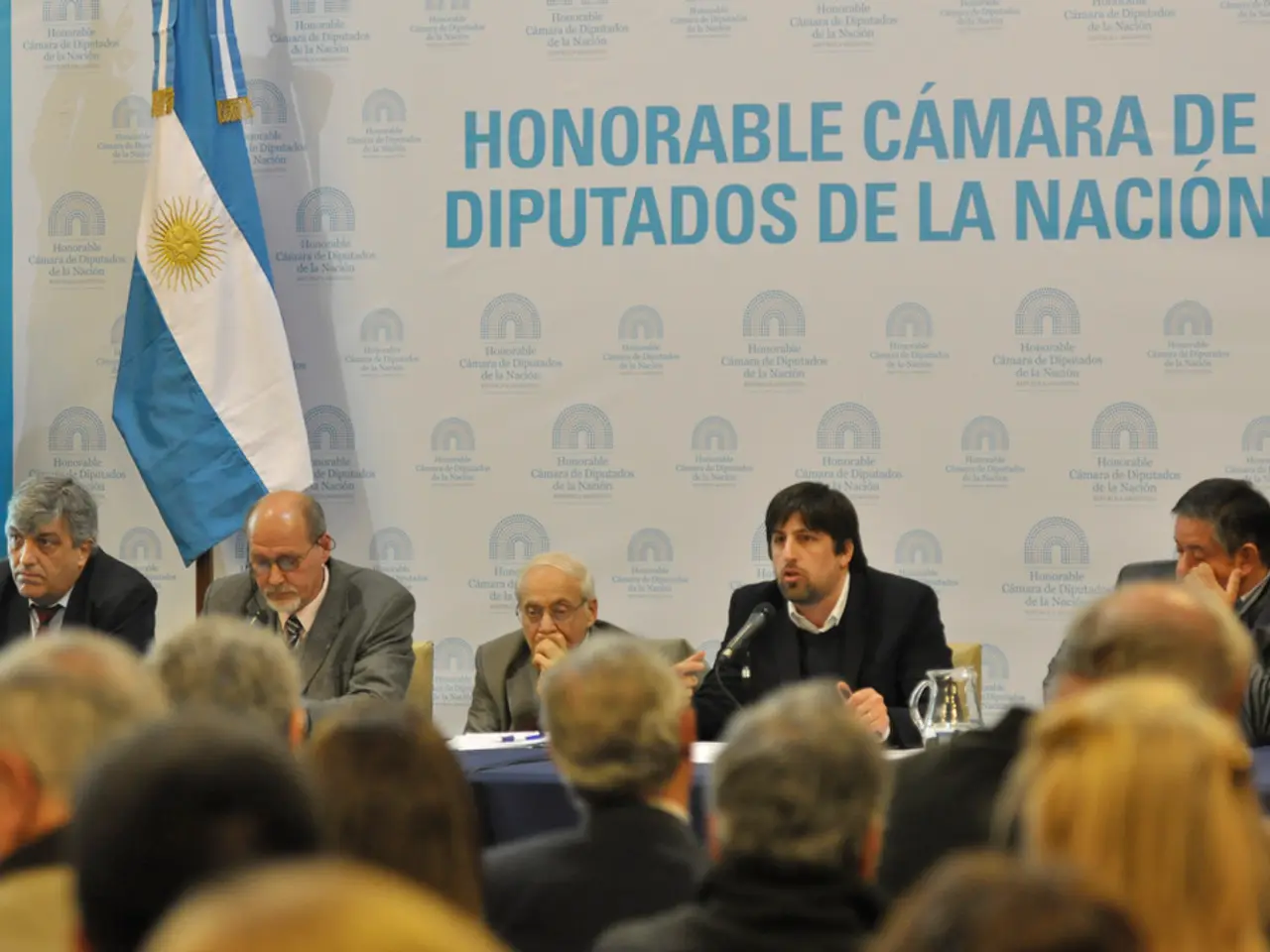Withdrawal would send a misleading message.
In the heart of German politics, a storm is brewing over the nomination of Frauke Brosius-Gersdorf to the Federal Constitutional Court. Behind the scenes, a solution to the current coalition's predicament is being sought, as the nominee faces intense scrutiny and allegations.
Brosius-Gersdorf, a constitutional lawyer, has found herself at the centre of a political storm, with her nomination exposing deep divisions within Germany's governing coalition. The CDU/CSU conservative bloc has strongly opposed her due to allegations of plagiarism, her progressive stance on abortion, and her endorsement of compulsory COVID-19 vaccinations. Meanwhile, the SPD views these objections as politically motivated.
If Brosius-Gersdorf were to withdraw her candidacy, it could have significant political and institutional implications. The coalition strain and political tensions could either be relieved or exacerbated, depending on how parties manage the fallout. The SPD may be seen as weakened, likely increasing tensions with the conservatives and possibly threatening the coalition's stability.
The withdrawal might also slow or complicate efforts to appoint judges, potentially preserving the court's current ideological balance and delaying the SPD's plans to shape rulings on party bans. The second senate Brosius-Gersdorf is supposed to join would not typically be responsible for the topic in most cases.
The postponement of the vote and the allegations against Brosius-Gersdorf have already sparked public outcry, including from Catholic bishops and lay Catholics who criticize her abortion views as a "domestic political scandal." If she withdraws, it might alleviate some public backlash concerning her contentious views but could also deepen concerns about political interference in judicial appointments and court credibility.
Her withdrawal would underscore how allegations and political opposition can influence judicial appointments to Germany's highest court. This might deter future appointments deemed too controversial by influential parliamentary groups, or conversely embolden parties to push harder for candidates aligned with their agendas.
Brosius-Gersdorf's appearance on "Markus Lanz" has been criticised by some as contributing to the politicization of the constitutional court. However, it is important to note that the election is about the replacement in the deliberately broadly composed highest German court, and not directly about the vote on paragraph 218.
The Union party is responsible for the current situation that has led to the controversy surrounding Brosius-Gersdorf's candidacy. The mudslinging campaign against her is not her responsibility, and the defence by the SPD leadership is deemed insufficient. Some critics argue that Brosius-Gersdorf's withdrawal could set a precedent, potentially hindering the election of judges with liberal views on abortion.
Despite the controversy, there is a strong argument for Brosius-Gersdorf's election. She is aware of the role change that comes with going to Karlsruhe, as several CDU politicians have already made. Moreover, there should be room for a woman with a position shared by more than three-quarters of the German population on the Federal Constitutional Court.
In conclusion, Brosius-Gersdorf's withdrawal could potentially relieve immediate political conflict but risk further destabilizing the fragile governing coalition, delay crucial judicial appointments, and impact the court's future ideological orientation. It would also highlight the growing politicization of Germany's constitutional court nomination process amid a polarized political climate.
The controversial nomination of Brosius-Gersdorf to the Federal Constitutional Court has brought the policy-and-legislation aspect of German politics to the forefront, with her potential withdrawal affecting politics and legislation in significant ways. The political tensions within the governing coalition over her nomination, due to allegations and ideological differences, highlight a deepening politicization of policy-and-legislation processes.
The withdrawal of Brosius-Gersdorf could have implications for the general-news landscape, as it would emphasize the influence of politics on judicial appointments and potentially set a precedent for future nominations. The public outcry and scrutiny surrounding her nomination have demonstrated the connection between politics, policies, and public opinion, making the nomination process a matter of general interest and debate.








